Childcare costs driving parents to send their kids to school early
STRUGGLING parents facing childcare fees that rival their mortgage repayments are sending their kids to school, as they are being warned of the consequences.
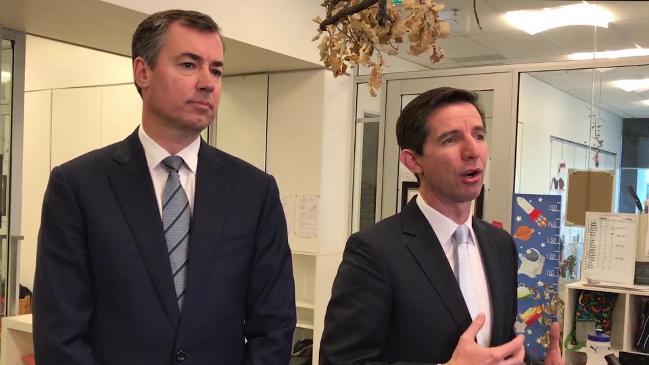
School Life
Don't miss out on the headlines from School Life. Followed categories will be added to My News.
EXCLUSIVE
AUSSIE kids are being pushed into school early because their parents are desperate to escape the rising cost of childcare.
And the flow on effect could be doing more harm than good with concerns the early start to primary school could be distressing as four-year-olds compete with six-year-olds in the same classroom.
International research, including from UK’s Loughborough University, reveals many four-year-olds are physically not ready to start school with physical development impacting sitting still, holding a pencil, putting on shoes and reading.
Additionally, there are more students per teacher in primary school than in childcare.
MORE: Childcare costing parents more than their mortgage
MORE: How to get your kids off their devices
MORE: Australian childcare fees among highest in the world
MORE: Childcare centres’ greedy price hike
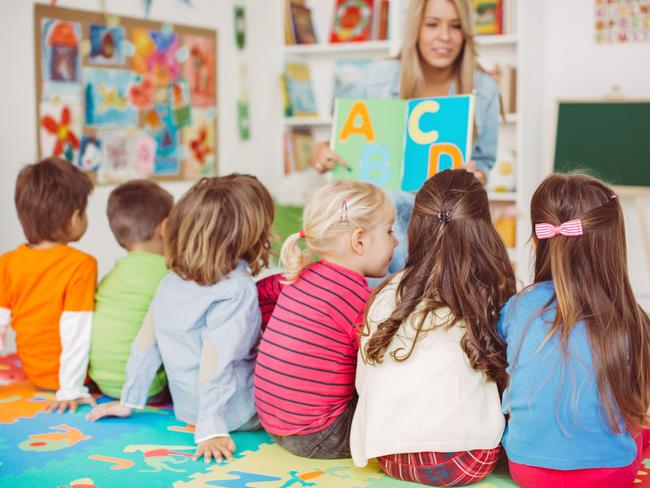
Despite this, News Corp Australia can reveal one in four Australian parents say the cost of childcare is the number one factor in deciding when to send their children to preschool.
Preschool is recognised as the year before formalised primary school learning with 30 per cent of children aged just three-years-old when they start according to new data.
More than 52 per cent of parents ranked “being toilet trained and feeding themselves” as their lowest considerations for deciding on when to send their kids to preschool.
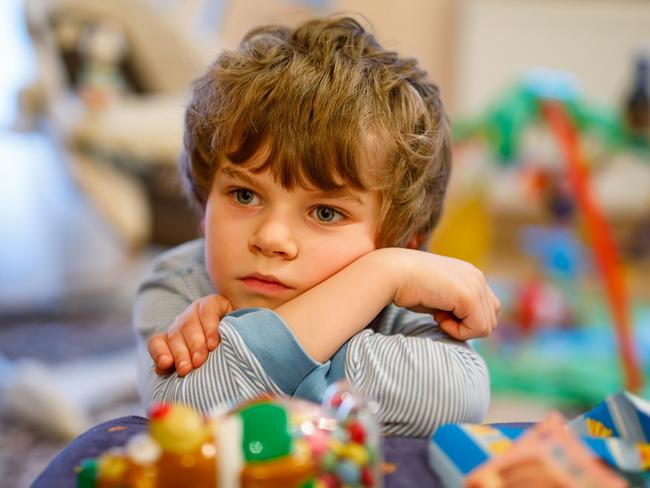
News Corp Australia commissioned the research of 1200 parents nationally after teachers reported a worrying rise in the number of very young children attending preschool.
The age a child can start preschool varies by state but many experts agree some parents are sending them earlier in order to lessen the financial burden of childcare.
Parents are often in the dark about when to start preschool and for those that send their children to a 15-hours a fortnight government-funded preschool they normally don’t have a choice about choosing to do a second year if their child is not quite ready.
More than 65 per cent of parents are currently paying between $200 and $799 out of pocket (after any government rebate) on childcare each week according to the News Corp survey.
This compares to 44 per cent who pay between $1 and $199 once their child goes to preschool.
MORE: Childcare changes worry stay-at-home parents
MORE: Ways you can get your kids to eat more vegetables that really work
MORE: How to keep your childcare subsidy
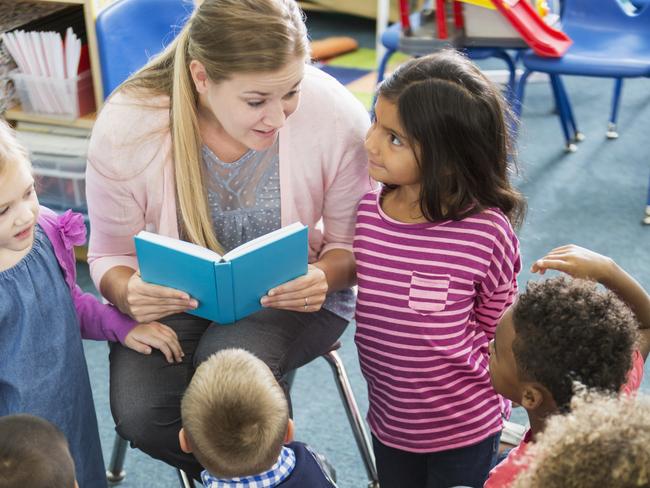
Unlike many other OECD (Organisation for Economic Co-operation and Development) countries Australia does not offer universal access to two-years of preschool before school — only one.
Several teachers who spoke to News Corp on condition of anonymity said they were seeing more kids put into school early.
They said some younger children were not able to use the toilet, were distracted and they could not verbalise or follow instructions.
“A lot of parents are saying ‘oh they’ll be right’ so they can ease their financial situation but in fact they won’t be OK.”
Dennis Yarrington president of the Primary Principals Association said his principals had seen parents in some communities sending their children to preschool early because of childcare cost pressures.
“That can absolutely be the case in some communities where parents find it difficult to access affordable childcare,” Mr Yarrington said.
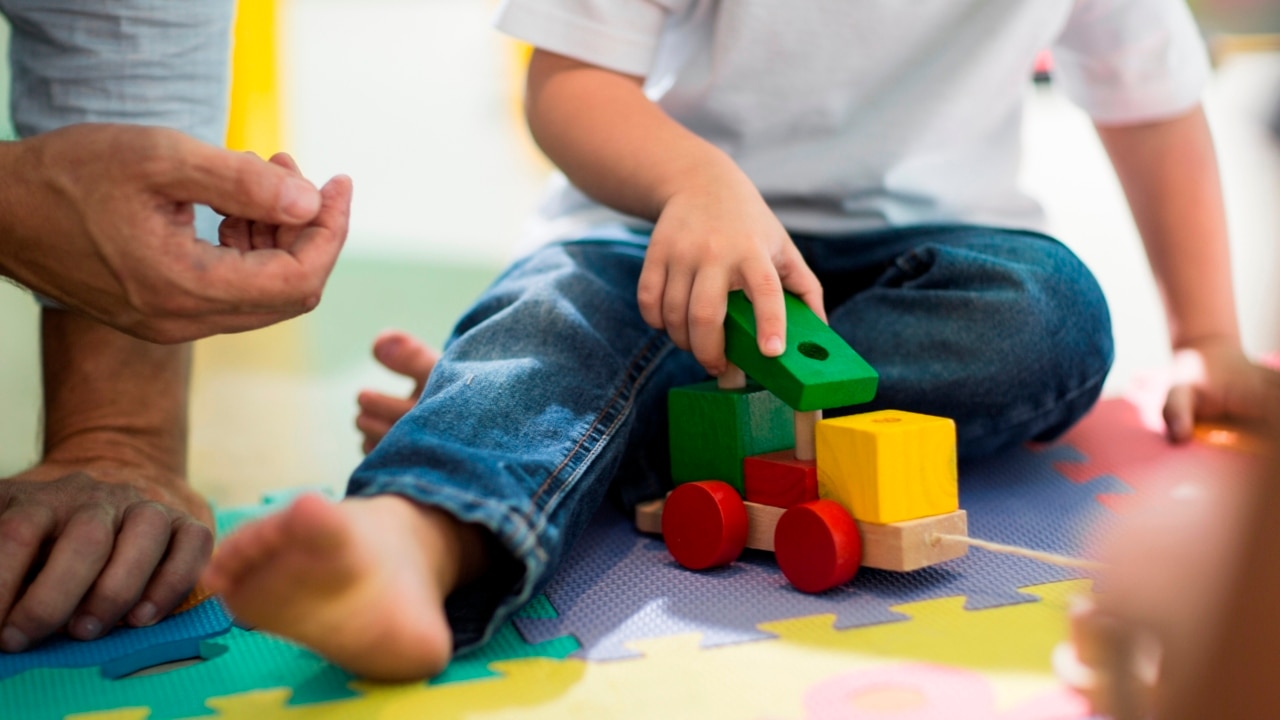
Australian Education Union president Correna Haythorpe said it was important preschool was not seen as a substitute for childcare and two-years of preschool nationally was needed.
“It is a critical element of a child’s education in preparing them for school and must be funded by governments in particular to ensure that two years of preschool is provided for every child,” Ms Haythorpe said.
“The cost burden of early childhood education should not be carried by parents.”
Early Childhood Australia CEO, Sam Page, said it would be interesting to see if the government’s new childcare subsidy would actually improve fee pain for parents.
“I empathise with parents who are not sure about when their child is ready for school and for whom financial considerations may come into play. I think we need to be providing parents more support.”
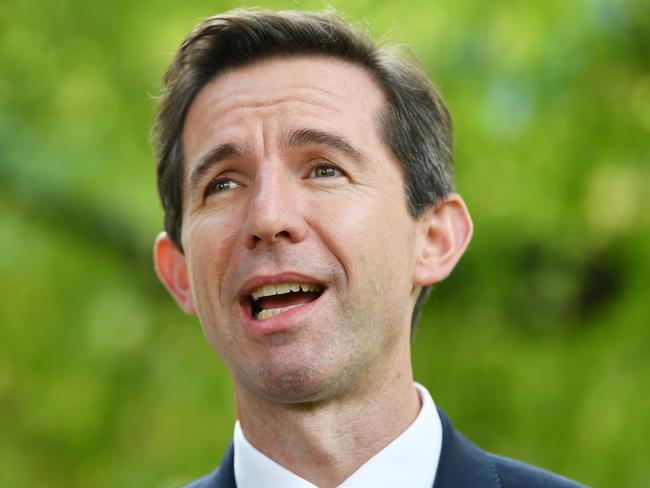
Education Minister Simon Birmingham said state governments were responsible for preschool funding and they needed to do more to consider two-years of funded preschool.
“Families shouldn’t be making decisions about school starting ages because of the costs of their child care but help is on the way in a week’s time with the Turnbull Government’s reforms,” Senator Birmingham said.
“We’re delivering more support for more families with our child care reforms that will help tackle those costs hurting families and reducing their choices about when their child starts school.”
Opposition early childhood spokeswoman Amanda Rishworth said it was not surprising families were looking for childcare fee relief.
“Under this Government fees keep going up, one in four families will lose support, and there is no commitment to preschool funding beyond the end of 2019. This government just doesn’t get it,” she said.
CHILDCARE COSTS RIVAL MORTGAGE PAYMENTS
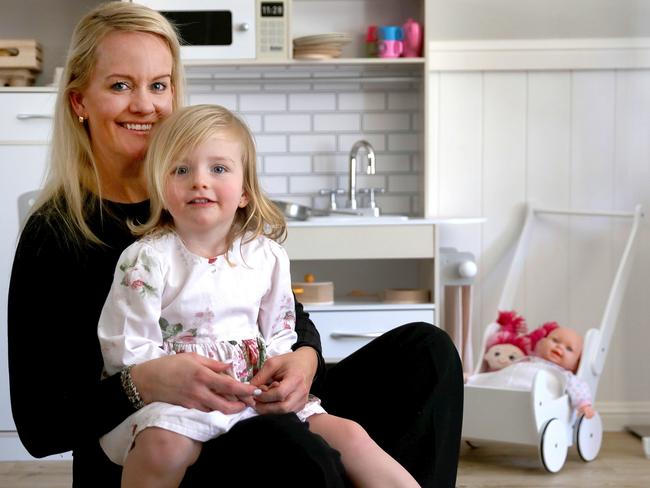
Angela Sommerfeld knows how much of a financial strain childcare costs can be.
The single mum to Elyza, 2.5, is entirely responsible for all her daughter’s needs — including childcare.
Ms Sommerfeld pays $585 out of pocket (after any rebate) each week for five days of childcare.
“Elyza will be going to school as soon as I can send her,” she told the Sunday Mail.
“It’s wrong that parents are being put in a situation where they have to consider the cost but the fact is it is a reality.”
The 40-year-old Wooloowin local said cost was not her number one decision on when to send Elyza to school “but it certainly is up there”.
“Why is the government putting parents in this situation and why don’t they address this problem,” Ms Sommerfeld said.
“The ACCC needs to step in and regulate childcare prices because they are out of control. Or more support needs to be given to allow parents to send their kids to preschool for two years to ease the burden.
“I’m paying the same amount on childcare as my mortgage at the moment.”
EARLY PUSH INTO SCHOOL SYSTEM “REALLY SAD”
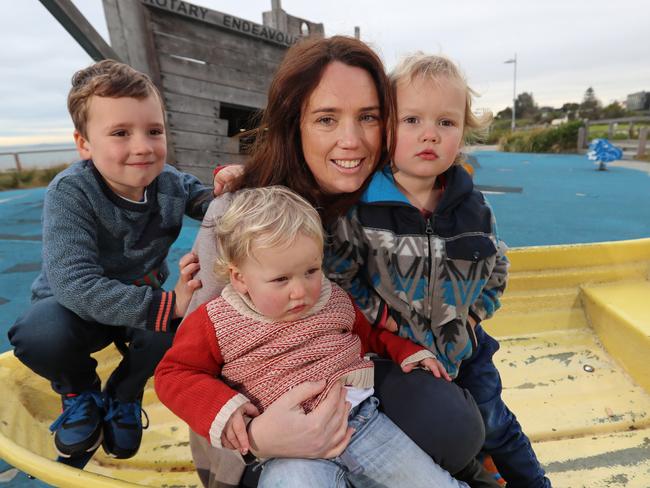
When Emma Hunter’s oldest son Charlie, 6, went to school the family’s budget burden was eased significantly.
“Oh gosh that’s made a huge difference for us,” she said.
The family of five, including husband Malcolm and the couple’s other son’s Jack, 3, and Angus, 1, are always trying to figure out how to make their finances stretch further.
While they didn’t send Charlie to preschool early, Ms Hunter knows she was lucky to be able to make that decision.
She extended her maternity leave to be able to stay at home to ease the family’s outgoings.
“I do know one person that sent their child to kindy earlier than they needed to or their child was 100 per cent ready and I am 90 per cent sure they did it for financial reasons,” Ms Hunter said.
“It’s really difficult and more and more people I’m seeing are also making the decision to stop working completely once they have more than one child because it just doesn’t make financial sense.”
She said it was “really sad” that people were pushing their kids into the school system because they weren’t financially coping.
“It’s really disadvantaging the children but what do parents do when they can’t afford to put food on the table.”
“It’s really unfair on the child.”
THE PRESCHOOL INFO YOU NEED TO KNOW

ACT
Known as preschool.
Children must turn four on or before 30 April in year of attendance.
Operate close to, or on, school sites. In newer areas, preschools are often run next to child care centres
Have no fees if government run, but usually have a voluntary contribution levy. Catholic and private preschools usually have smaller fees than long day care.
Find out more here.
NSW
Known as preschool.
Children must turn 4 on or before 31 July in year of attendance.
Operated as stand-alone kindergarten services — for example, community kindergartens or services delivered by non-state schools
Might be offered as school-based, fee-free programs run by the Department of Education
sometimes offer flexible hours for working parents.
Usually charge fees, which are set by providers unless government run in which case free.
Find out more here.
NT
Known as preschool.
Children must turn four on or before 30 June in year of attendance.
Operated by the Department of Employment, Education and Training
Have no fees, sometimes offer flexible hours for working parents, might offer bus services in some areas.
Find out more here.

QLD
Known as kindergarten.
Children must turn four on or before 30 June in year of attendance.
Operate as either stand-alone kindergarten services, or as long day care centres
mostly operate close to, or on, school sites.
Have fees, which are set by providers however these are cheaper than childcare. Some are subsidised by the government and are free.
Find out more here.
SA
Known as child parent centres, which operate within schools. Are also known as kindergartens, which operate independently.
Children must turn four before 1 May in year of attendance.
Have no fees, but some kindergartens ask for a voluntary contribution levy
Might offer Aboriginal and Torres Strait Islander children the opportunity to access extra hours.
Find out more here.
TAS
Known as kindergarten.
Children must be four years old on 1 January in year of attendance
Have no fees and are linked to the school system. Catholic and private schools may charge a fee.
Find out more here.
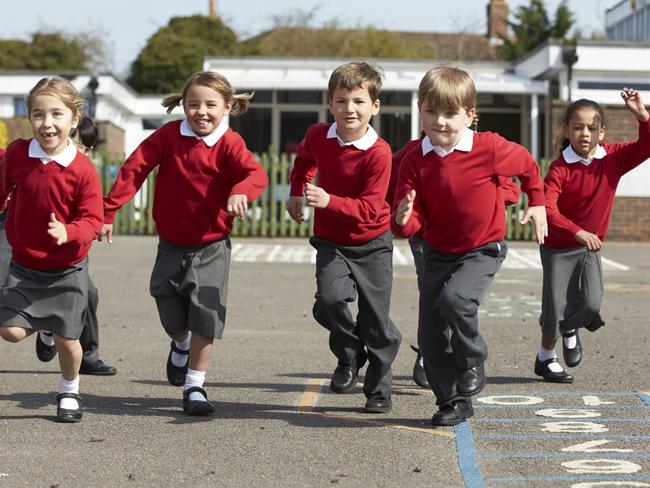
VIC
Known as kindergarten.
Children must turn four on or before 30 April in year of attendance.
Operated as stand-alone centres and can also be connected to schools
Victoria provides 15-hours a week access to children in the year before they start school. Some have fees and some can be managed by parent communities.
Are sometimes offered as programs in long day care centres, where they must be run by qualified kindergarten teachers if government funded
Are offered as mobile services in remote areas.
Find out more here.
WA
Known as kindergarten.
Children must turn four on or before 30 June in year of attendance.
Operate within schools and day care centres and as independent centres, offer bus services
have no fees.
Find out more here.
*Source: Raising Children Network, Department of Education in each state/territory
HOW TO CHECK IF YOUR CHILD IS READY FOR SCHOOL

1. Look at the whole child
Intelligence is just one factor. Assess how your child deals with conflict. Do they share? Do they play on their own or interact with other kids. Social and emotional readiness is just as important as academic development. Physically are they much smaller than their peers? All of this will impact their ability to cope with the demands of formalised primary school. If they are not ready in all areas they are probably not ready. If your child is intelligent don’t be concerned about them becoming bored because the curriculum will be modified to meet their needs.
2. Gender does make a difference
Every child is an individual but most four-year-old boys are not ready to sit still and focus for lengthy periods that formalised schooling often requires. Boys generally benefit from an extra year at preschool for many reasons, for example their fine motor skills develop later than girls as does their language. They also produce less oxytocin than girls so little boys have an innate need to move and can find it difficult to sit still and focus and are more active learners. In time the difference between the genders evens out but in the early years there is quite a difference.
3. Age
Some four-year-olds thrive when starting school and others will struggle for their entire school life. More and more the evidence is suggesting that holding off on formal primary school learning is beneficial in the long term, particularly nowadays when junior school is increasingly academic and demanding.
4. Consider the long term
If a child enters school before they are ready in all key areas of development it can be
detrimental to their learning and self esteem, but there are also implications for the older years too. If they are considerably younger or more immature than the rest of their peers how will they manage the pressures of final exams or withstand peer pressure when it comes to drug and alcohol use, risky behaviour and sexuality or bullying?
5. Trust your instincts
Seek advice from early childhood educators and teachers but trust your instincts too. If you feel your child is not quite ready in some way then why not give them another year of play-based learning because in many cases the benefits of sending your child later far outweigh the risks of sending them too soon.
*Source: Karen Senior, author of Is My Child Ready for School and primary school teacher for 17-years
Originally published as Childcare costs driving parents to send their kids to school early


